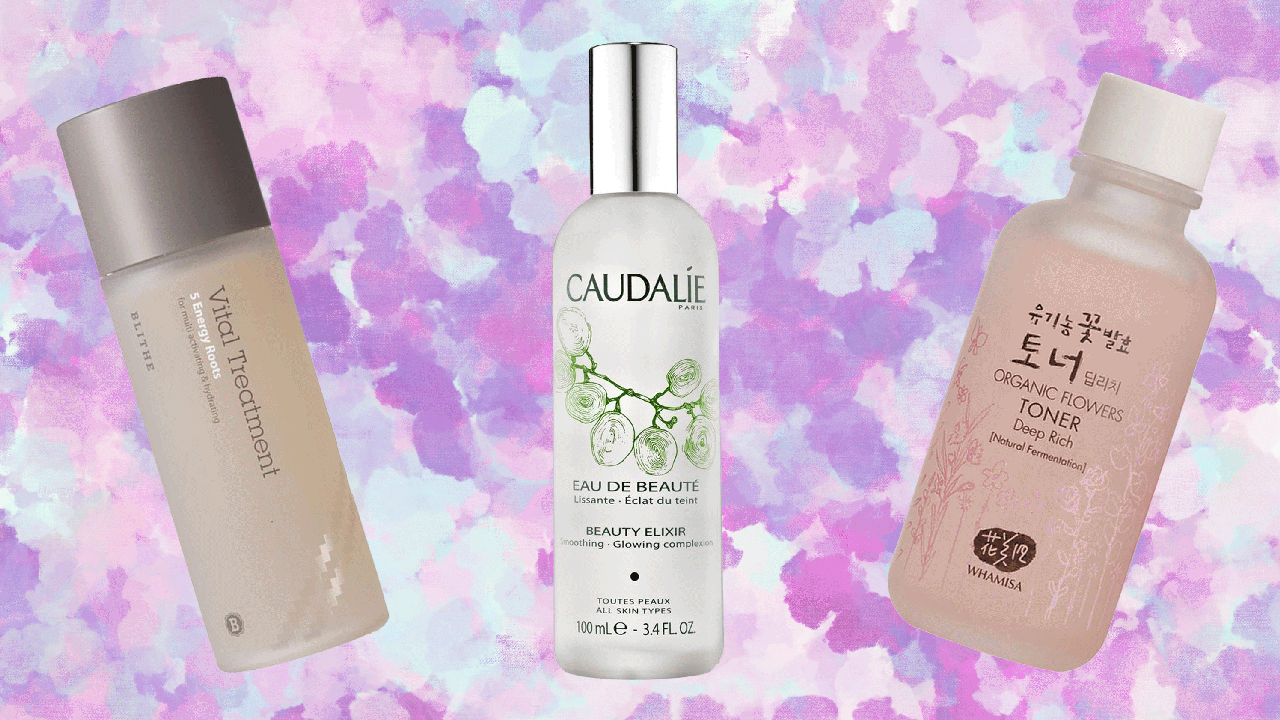The Essential Guide to Makeup Toner: A Comprehensive Overview
Related Articles: The Essential Guide to Makeup Toner: A Comprehensive Overview
Introduction
With great pleasure, we will explore the intriguing topic related to The Essential Guide to Makeup Toner: A Comprehensive Overview. Let’s weave interesting information and offer fresh perspectives to the readers.
Table of Content
The Essential Guide to Makeup Toner: A Comprehensive Overview

In the realm of skincare, the role of makeup toner is often misunderstood, relegated to a mere afterthought in the daily routine. However, this versatile product holds a significant place in achieving optimal skin health and enhancing the efficacy of other skincare products.
This comprehensive guide delves into the world of makeup toner, exploring its various functions, benefits, and types, ultimately revealing its essential role in a well-rounded skincare regimen.
Understanding the Role of Makeup Toner
Makeup toner, a liquid skincare product applied after cleansing and before serums or moisturizers, serves as a bridge between cleansing and subsequent skincare steps. Its primary functions include:
-
Balancing pH: The skin naturally has a slightly acidic pH level (around 5.5), which acts as a barrier against harmful bacteria and environmental aggressors. However, cleansing products can disrupt this delicate balance, leaving the skin vulnerable. Toner helps restore the skin’s natural pH, creating a favorable environment for optimal skin health.
-
Removing Residual Impurities: Even after thorough cleansing, microscopic traces of dirt, oil, and makeup residue may remain on the skin. Toner acts as a final sweep, effectively removing these lingering impurities, ensuring a clean canvas for subsequent skincare products.
-
Preparing the Skin for Absorption: Toner helps to refine the skin’s texture, minimize the appearance of pores, and improve the absorption of serums and moisturizers. This enhanced absorption allows skincare products to penetrate deeper into the skin, maximizing their efficacy.
-
Hydrating and Soothing: Many toners are formulated with hydrating ingredients like hyaluronic acid, aloe vera, and glycerin, which replenish moisture and soothe the skin, leaving it feeling refreshed and revitalized.
The Benefits of Incorporating Toner into Your Routine
The benefits of using makeup toner extend beyond its immediate effects, contributing to long-term skin health and a radiant complexion. Here are some notable advantages:
-
Improved Skin Texture: Regular toner use helps to minimize the appearance of pores, refine skin texture, and create a smoother, more even canvas. This is particularly beneficial for individuals with oily or acne-prone skin, as it helps to control excess sebum production and prevent clogged pores.
-
Enhanced Skin Clarity: Toner effectively removes dead skin cells and impurities, promoting cell turnover and revealing brighter, more radiant skin. This can be particularly beneficial for those struggling with hyperpigmentation or uneven skin tone.
-
Reduced Breakouts: Toners with ingredients like salicylic acid or tea tree oil can help to prevent breakouts by controlling excess oil production, reducing inflammation, and promoting the healing of existing blemishes.
-
Improved Skin Hydration: Toners with humectants like hyaluronic acid draw moisture from the air and lock it into the skin, resulting in a plumper, more hydrated complexion. This is particularly beneficial for dry or dehydrated skin types.
-
Enhanced Product Absorption: By removing residual impurities and restoring the skin’s pH balance, toner allows subsequent skincare products to penetrate deeper into the skin, maximizing their effectiveness.
Types of Makeup Toners: A Guide to Choosing the Right One
Makeup toners are available in a wide variety of formulations, each catering to specific skin concerns and preferences. Understanding the different types of toners can help you select the most suitable one for your individual needs:
-
Alcohol-Based Toners: These toners, often used for oily skin, contain alcohol to help remove excess oil and tighten pores. However, alcohol can be drying for some individuals, so it’s essential to choose a toner with a low alcohol content or opt for an alcohol-free alternative.
-
Astringent Toners: Similar to alcohol-based toners, astringents are designed for oily or acne-prone skin. They contain ingredients like witch hazel or salicylic acid to help control oil production and minimize the appearance of pores. However, astringents can be harsh for sensitive skin.
-
Hydrating Toners: These toners are formulated with humectants like hyaluronic acid, glycerin, or aloe vera to replenish moisture and soothe the skin. They are ideal for dry or dehydrated skin types and can also be beneficial for mature skin.
-
Exfoliating Toners: These toners contain chemical exfoliants like alpha hydroxy acids (AHAs) or beta hydroxy acids (BHAs) to remove dead skin cells and promote cell turnover. They can help to improve skin texture, reduce hyperpigmentation, and prevent breakouts.
-
Calming Toners: These toners are specifically designed for sensitive skin and are formulated with calming ingredients like chamomile, cucumber, or green tea. They help to soothe irritation, reduce redness, and protect the skin from environmental aggressors.
-
Balancing Toners: These toners are ideal for combination skin, as they help to balance oil production in the T-zone while hydrating the drier areas. They often contain a combination of ingredients that address both oiliness and dryness.
Tips for Incorporating Makeup Toner into Your Routine
-
Choose the Right Toner: Carefully consider your skin type and concerns when selecting a toner. Opt for alcohol-free toners if you have sensitive skin, and choose hydrating toners if your skin is dry.
-
Apply Toner After Cleansing: Apply toner after cleansing and before any other skincare products. Use a cotton pad or your fingertips to gently pat the toner onto your skin.
-
Avoid Over-Application: A small amount of toner is usually sufficient. Avoid rubbing or scrubbing the toner onto your skin, as this can irritate it.
-
Use Toner Twice Daily: For optimal results, apply toner twice daily, once in the morning and once in the evening.
-
Listen to Your Skin: If you experience any irritation or dryness after using a toner, discontinue use and consult a dermatologist.
Frequently Asked Questions About Makeup Toner
Q: Is makeup toner necessary for all skin types?
A: While not strictly essential, toner can be beneficial for most skin types. It helps to restore the skin’s pH balance, remove residual impurities, and enhance the absorption of subsequent skincare products. However, individuals with extremely sensitive skin may find that toner irritates their skin, so it’s important to choose a gentle formula and listen to your skin’s reaction.
Q: Can toner replace cleansing?
A: No, toner cannot replace cleansing. Cleansing removes makeup, dirt, oil, and other impurities from the skin’s surface. Toner is a complementary step that helps to balance the skin’s pH, remove residual impurities, and prepare the skin for subsequent skincare products.
Q: How often should I use makeup toner?
A: Most dermatologists recommend using toner twice daily, once in the morning and once in the evening. However, if you have sensitive skin or find that your skin becomes irritated with frequent use, you can reduce the frequency to once a day or every other day.
Q: Can I use toner on my eyes?
A: It is generally not recommended to use toner on the delicate skin around the eyes. The skin in this area is thinner and more sensitive, and some toners may contain ingredients that can irritate the eyes. If you wish to use toner in this area, opt for a specifically formulated eye toner or a gentle, alcohol-free toner.
Q: Can I use toner after applying serum?
A: It is best to apply toner after cleansing and before applying serums or moisturizers. This allows the toner to effectively balance the skin’s pH and prepare it for optimal product absorption.
Conclusion: The Importance of Makeup Toner in Skincare
Makeup toner, often overlooked in skincare routines, plays a vital role in achieving healthy, radiant skin. Its ability to balance the skin’s pH, remove residual impurities, enhance product absorption, and address specific skin concerns makes it an indispensable tool for maintaining optimal skin health. By incorporating toner into your skincare regimen, you can unlock its full potential and experience the transformative benefits it offers for a brighter, more youthful complexion.








Closure
Thus, we hope this article has provided valuable insights into The Essential Guide to Makeup Toner: A Comprehensive Overview. We appreciate your attention to our article. See you in our next article!